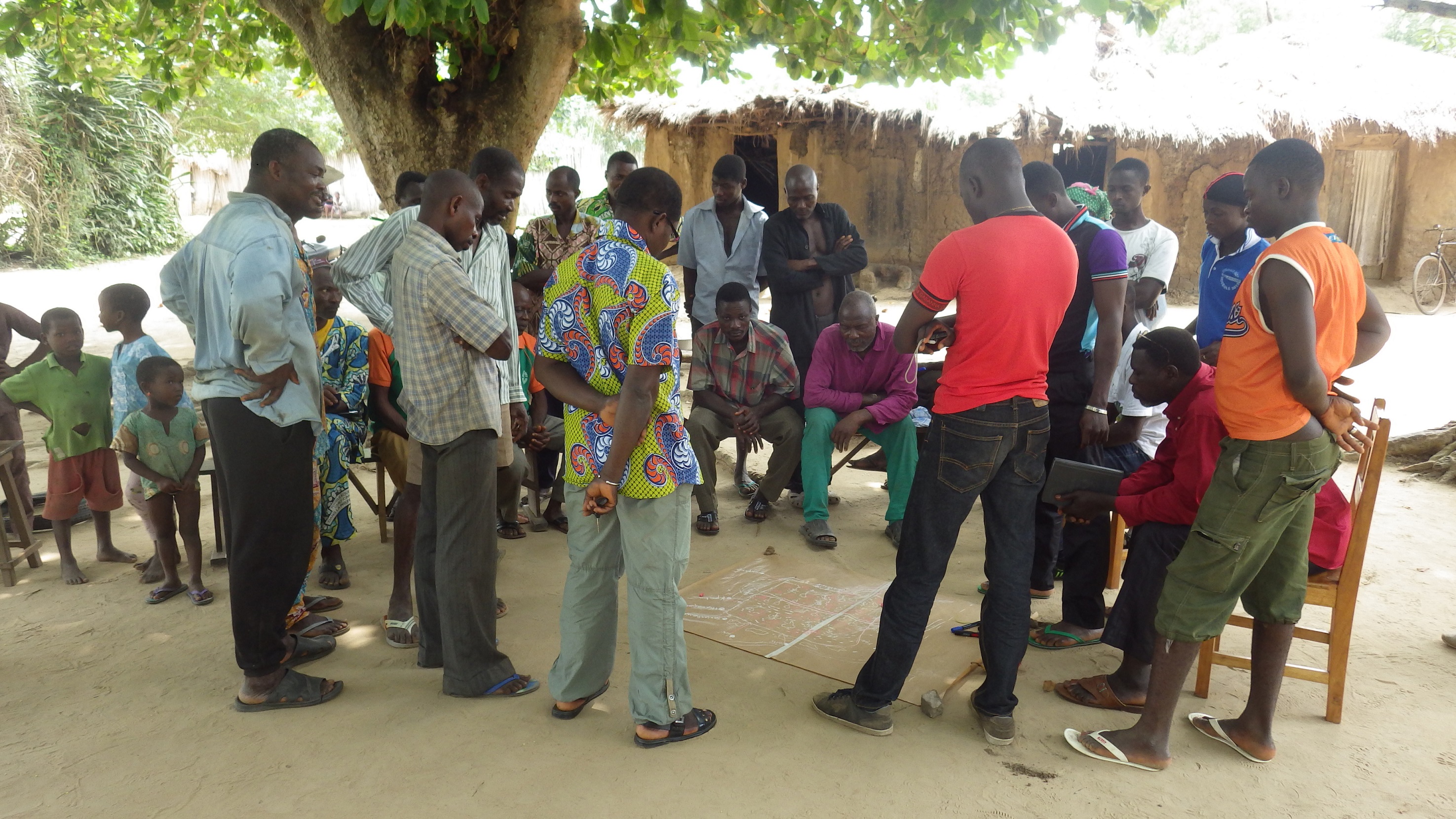Participatory natural resources management by local actors
Participatory mapping exercise
AMN Patrice Bada
Key elements for the conservation of biodiversity and ecosystem services for sustainable development are the equitable participation of stakeholders and the organizational development of local management associations.
The project has built on existing local initiatives to identify areas of ecological, economic and social interest for which there is a willingness of the population to protect and manage them. Based on these initiatives, the project supported the creation of local management associations, which then received the territorial authorities' mandate to manage the central areas and buffer zones in their region. They will have the technical support of the project for their organizational development as well as for the technical and financial management of these areas, including the monitoring of management and harvesting rules for natural resources.
These rules of use were developed in a participatory manner for each core area and buffer zone. To this end, a series of consultation sessions was organized for each region by local NGOs involved in the project. The rules devised by the population have been drafted by a lawyer to ensure their compliance with the laws in force.
• Creation of ownership by the beneficiaries: participatory process of creation of the reserve and development of management rules; participatory surveillance and ecological monitoring.
• Land tenure: community and traditional protected areas (e.g. sacred forests) have been assigned legal status.
• Management association with clear statutes and mandate: recognition of their status and functions by legal acts.
In a context where there is no clear and reliable land tenure, various actors (customary land owners, de facto users, territorial authorities) must be involved in the discussion of the future use of land in order to reach a legally recognized agreement that will be accepted and respected in the long term.
Concerning the rules for sustainable management in buffer zones, the challenge was to develop rules and sanctions in conformity with national legislation and applicable at local level. In order to do so, a series of consultation sessions has been held to allow the population to set itself rules for cases that are not yet regulated by existing laws.
Users often perceived a degradation of their natural resources and a reduction in ecosystem services. But they rather attributed it to external forces (sorcery, God's will, etc.) than to their own overexploitation and unsustainable use of the resource.

